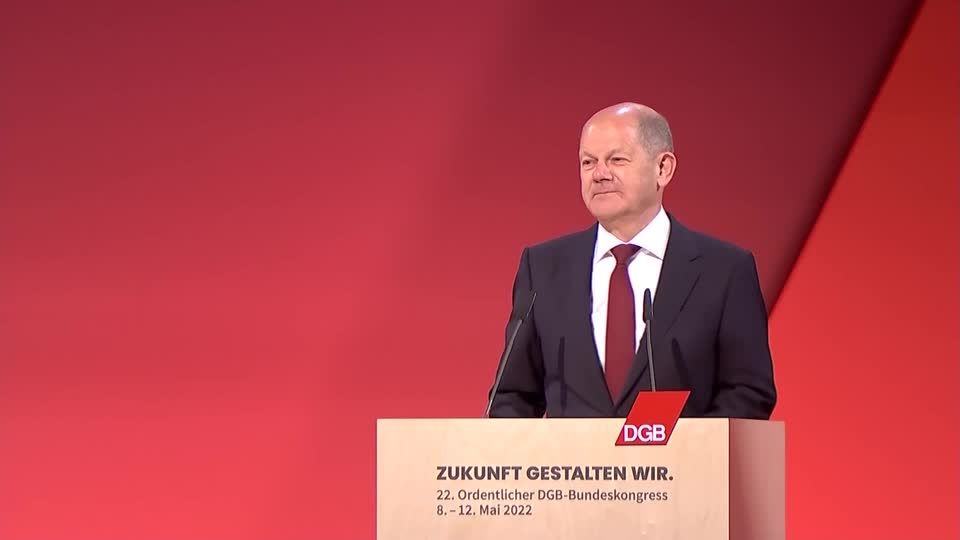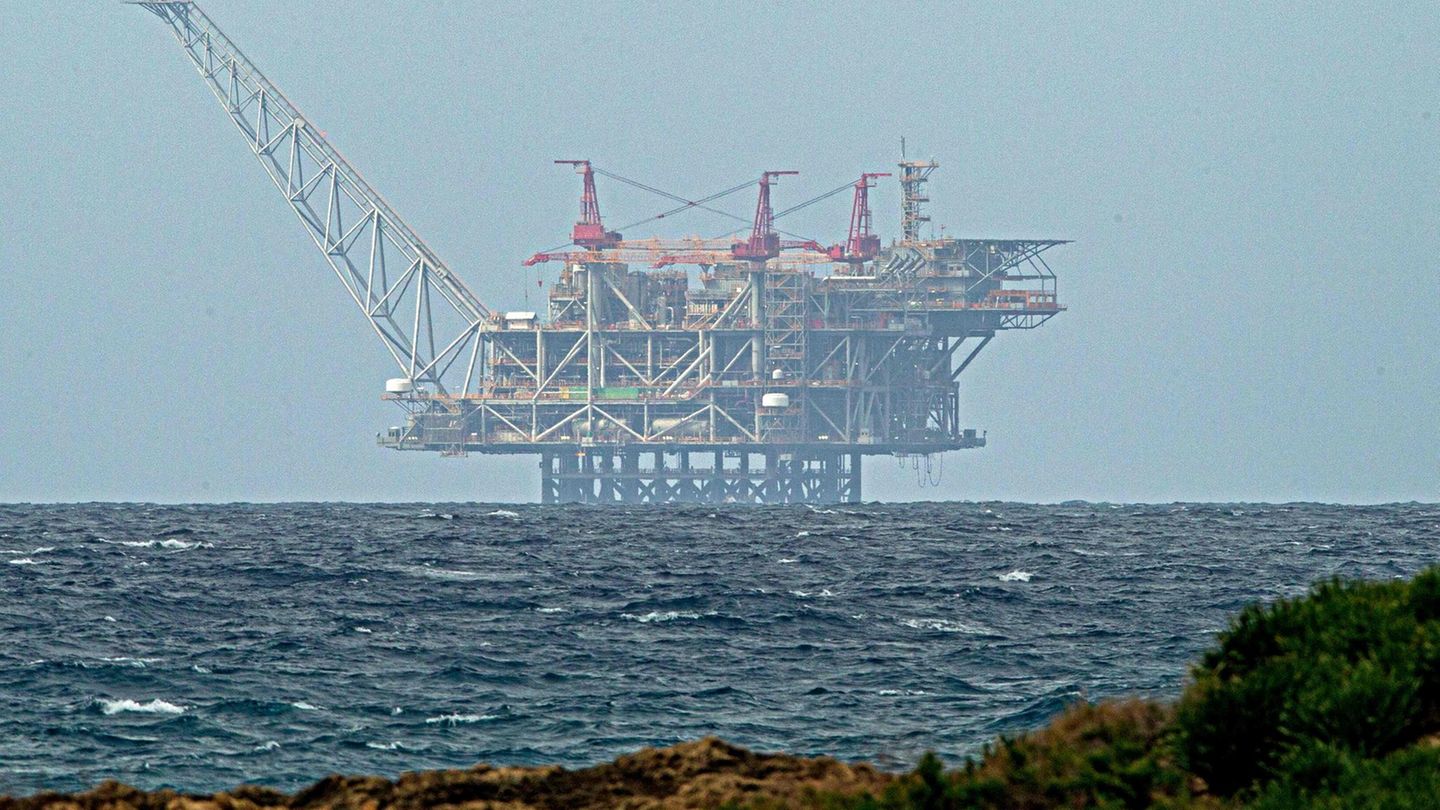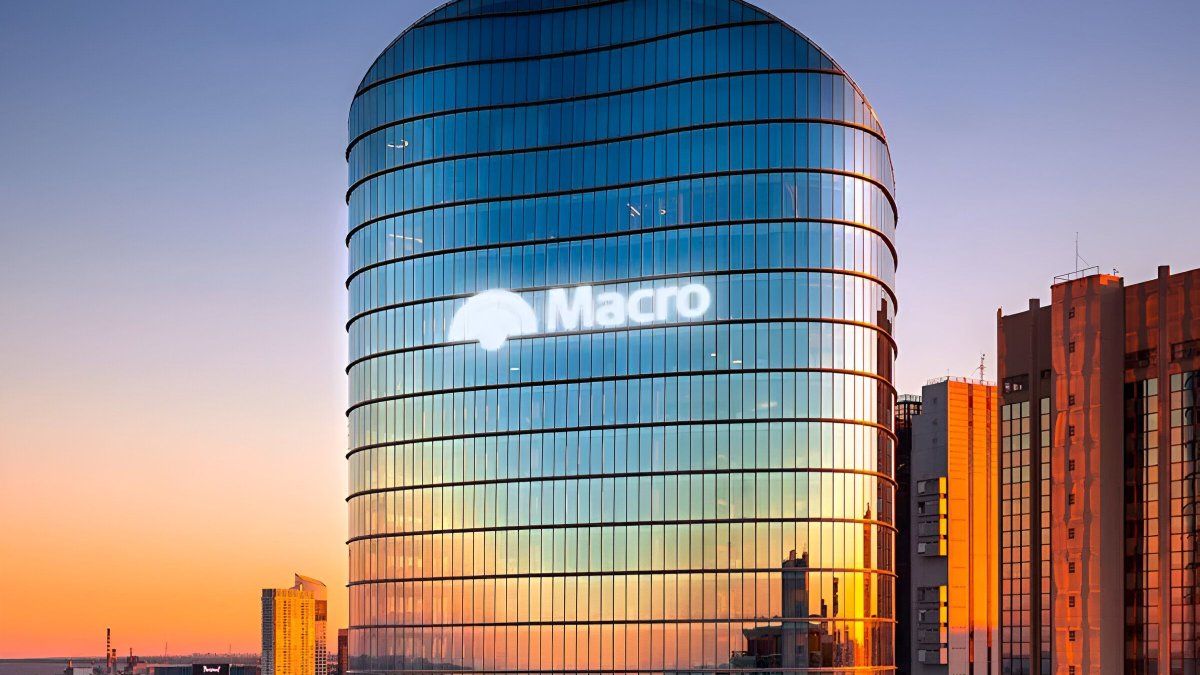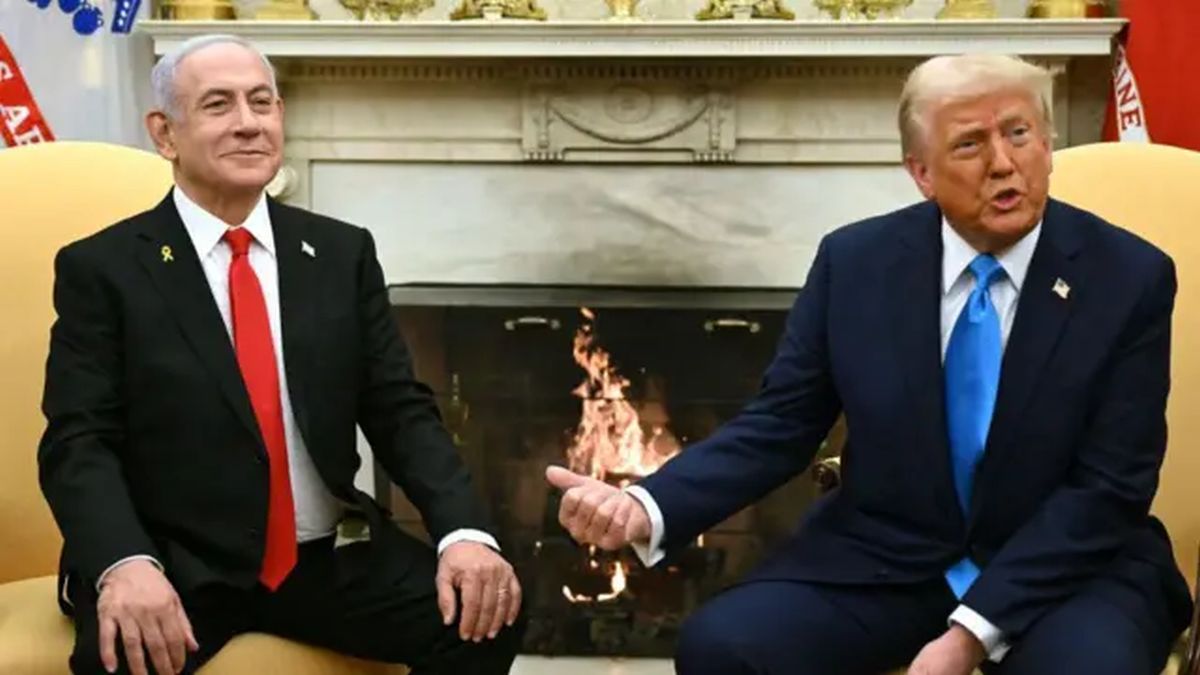Top politicians are rushing to find ways to free Europe from Russian gas – now also in Cairo and Jerusalem. New gas exports to the EU are being celebrated as a breakthrough. Compared to imports from Russia, however, they should initially be of little consequence.
Away from Russian gas! That is currently the slogan in Europe after the Russian war of aggression in Ukraine. They want to make themselves independent of the huge empire and stop sending money to Moscow that is helping to finance President Vladimir Putin’s war. However, becoming independent of Russian gas overnight is proving to be difficult.
A new agreement with two Middle East countries should help: Israel is to deliver liquefied gas to Europe via Egypt in the future. During a visit by EU Commission President Ursula von der Leyen to Cairo on Wednesday, ministers from both countries signed a declaration of intent. The agreement comes at a “very difficult time” for the EU – during a war on European soil, said von der Leyen. The goal is fossil fuels from “trustworthy suppliers”.
Von der Leyen speaks of a “special moment”
According to the statement, Israel is to deliver gas to neighboring Egypt, which is to be liquefied there and exported to Europe in tankers. The agreement is initially valid for three years. Thanks to an existing pipeline, Israel has already become one of the most important gas suppliers for both Egypt and neighboring Jordan. “What a special moment,” von der Leyen said.
The moment should also come at the right time, because the Russian Gazprom group has also shut down its gas supplies to France, Italy and Austria. Gazprom had previously reduced deliveries via the Nord Stream 1 pipeline to Germany by 60 percent. This was justified with technical problems during maintenance work in connection with western sanctions against Russia. Federal Economics Minister Robert Habeck (Greens) described this as “advanced” and spoke of “a political action” by the leadership in Moscow.
Large natural gas deposits off Israel and Egypt
Large gas deposits have been discovered in the eastern Mediterranean, including the Israeli Tamar and Leviathan fields and the Egyptian Zohr field. Energy companies such as Eni, BP and Total, who want to broaden their gas portfolios and make themselves less dependent on oil, are competing for them.
In the Levant Basin, where the gas fields are located, gas reserves have been estimated at around 3.5 trillion cubic meters. According to data from , Israel had gas reserves of around 600 billion cubic meters at the end of 2020, which was around 0.3 percent of global reserves. In Russia it was around 20 percent.
Israel has been delivering gas from its deposits to Europe via Egypt since 2020, after the two countries signed a corresponding agreement. In order to increase exports to Europe, however, significant investments are required. In Cairo, von der Leyen also pledged to set up a nutrition fund worth 100 million euros for Egypt – and to provide a total of three billion euros for programs to promote water supply, agriculture and food security for the region in the next few years.

Israeli gas supplies only a fraction of Russian
Since the Russian invasion of Ukraine, the EU is increasingly looking for other sources of energy. Federal Minister of Economics Robert Habeck (Bündnis90/Die Grünen) was already in Qatar. The war triggered the worst energy crisis in recent years among “our friends in Europe,” said Israeli Energy Minister Karine Elharrar before the signing.
Compared to Russian imports, however, the expected quantities from Israel are likely to be rather small: the EU Commission expects deliveries of around 10 billion cubic meters of gas in 2023. In contrast, the EU imported more than 15 times that amount from Russia last year. However, the Commission believes it is possible to reduce dependence on fossil fuels from Russia by two-thirds by the end of the year.
Israel still has high hopes for the cooperation, as one reads in one. The signing of the agreement is “a further step towards positioning Israel as a natural gas superpower”. The export of natural gas serves as a diplomatic lever and makes a geopolitical contribution to Israel.
EU largest importer of natural gas worldwide
“This move has tremendous economic implications for the local energy market and Israeli economy, and aligns with many other processes promoted by the Department of Energy to help Israel and countries like Egypt drastically reduce the use of polluting fuels like coal and oil and reduce air pollution in the region.”
A 1,900-kilometer pipeline in the Mediterranean has been in the planning for years to transport gas from Israel via Cyprus to Greece and thus to the EU. This route would be cheaper than converting it to LPG. The EU is already the world’s largest importer of natural gas. Natural gas currently accounts for around a quarter of the EU’s energy consumption. Much of it is used to heat buildings.
Source: Stern
Jane Stock is a technology author, who has written for 24 Hours World. She writes about the latest in technology news and trends, and is always on the lookout for new and innovative ways to improve his audience’s experience.




